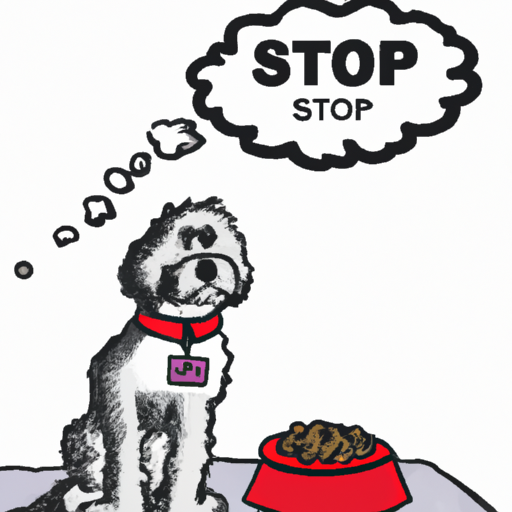Introduction
You’ve probably noticed how your furry friend can clear a bowl of food with remarkable speed. But have you ever wondered, do dogs know when to stop eating?
Understanding Canine Eating Habits
Contrary to what we might think, dogs don’t always self-regulate their food intake. This is a trait that traces back to their wild ancestors, who never knew when their next meal would be. So, they ate as much as they could when food was available:
- Survival instinct: Dogs have evolved from wolves, creatures that had to be opportunistic eaters to survive in the wild. This survival instinct can still kick in with domesticated dogs, leading them to eat more than necessary.
- Fast eaters: Dogs are known to eat quickly, which doesn’t allow their bodies to register fullness in real-time. By the time their brain receives the signal that they’re full, they’ve often eaten more than they need.
Factors Affecting Dogs’ Eating Habits
Several factors can influence your dog’s eating behavior. Understanding these could help you manage their diet better:
- Breed: Some dog breeds are more prone to overeating than others. Labradors, Beagles, and Dachshunds, for instance, are known to be food-driven.
- Age and health: Puppies, elderly dogs, and those with certain health conditions may have different dietary needs and habits.
- Diet: The type and amount of food you give your dog play a major role. Cheap, low-quality food might not satisfy your dog’s hunger, causing them to eat more.
| Factors | Effects on Eating Habits |
|---|---|
| Breed | Different breeds have different tendencies to overeat |
| Age and Health | Dietary needs change with age and health conditions |
| Diet | The quality and quantity of food affect satiety |
How to Prevent Overeating in Dogs
Now that you understand why your dog might be overeating, here are some strategies to help control their food intake:
- Measure meals: Use a standard measuring cup to ensure you’re not overfeeding your dog.
- Scheduled feeding: Instead of leaving food out all day, have set meal times.
- Quality food: Invest in high-quality dog food that will satisfy your dog’s nutritional needs.
- Regular exercise: Physical activity can help control your dog’s weight and also reduce their desire to eat out of boredom.
FAQ
Below are a few quick answers to some commonly asked questions about dogs and their eating habits.
Q: Why does my dog act like he’s always hungry?
A: This could be due to several reasons such as poor-quality food, health issues, or simply boredom. It’s best to consult a vet if you’re concerned about your dog’s eating habits.
Q: Can a dog overeat and get sick?
A: Yes, dogs can and do get sick from overeating. It can lead to obesity, diabetes, and other serious health problems.
Q: How many meals should I feed my dog each day?
A: Most vets recommend feeding your dog twice a day, but this can vary based on their age, health, and lifestyle.
Remember, a well-fed dog is a happy dog. By understanding your dog’s eating habits and taking appropriate measures to control their food intake, you can ensure they remain healthy and content.



